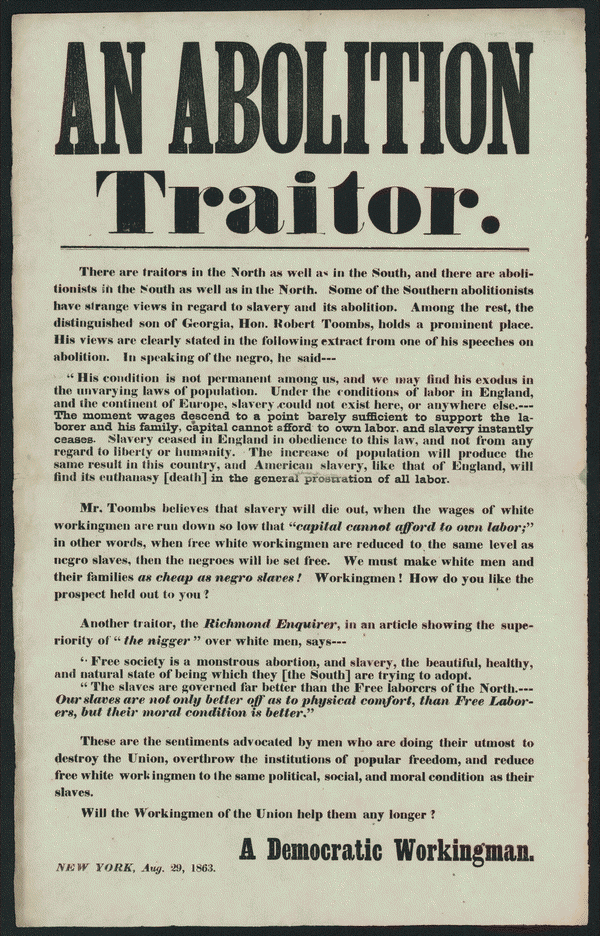This text is part of the Teaching Hard History Text Library and aligns with Key Concept 4.

AN ABOLITION Traitor.
There are traitors in the North as well as in the South, and there are abolitionists in the South as well as in the North. Some of the Southern abolitionists have strange views in regard to slavery and its abolition. Among the rest, the distinguished son of Georgia, Hon. Robert Toombs, holds a prominent place. His views are clearly stated in the following extract from one of his speeches on abolition. In speaking of the negro, he said---
“His condition is not permanent among us, and we may find his exodus in the unvarying laws of population. Under the conditions of labor in England, and the continent of Europe, slavery could not exist here, or anywhere else.---The moment wages descend to a point barely sufficient to support the laborer and his family, capital cannot afford to own labor, and slavery instantly ceases. Slavery ceased in England in obedience to this law, and not from any regard to liberty or humanity. The increase of population will produce the same result in this country, and American slavery, like that of England, will find its euthanasy [death] in the general prostration of all labor.
Mr. Toombs believes that slavery will die out, when the wages of white workingmen are run down so low that “capital cannot afford to own labor;” in other words, when free white workingmen are reduced to the same level as negro slaves, then the negroes will be set free. We must make white men and their families as cheap as negro slaves! Workingmen! How do you like the prospect held out to you?
Another traitor, the Richmond Enquirer, in an article showing the superiority of “the nigger” over white men, says
“Free society is a monstrous abortion, and slavery, the beautiful, healthy, and natural state of being which they [the South] are trying to adopt.
“The slaves are governed far better than the Free laborers of the North.
Our slaves are not only better off as to physical comfort, than Free Laborers, but their moral condition is better.”
These are the sentiments advocated by men who are doing their utmost to destroy the Union, overthrow the institutions of popular freedom, and reduce free white workingmen to the same political, social, and moral condition as their slaves.
Will the Workingmen of the Union help them any longer?
A Democratic Workingman.
NEW YORK, Aug. 29, 1863.